Love Animals? Study Zoo Keeping.
Kick start your career in Zoo Keeping with this terrific Certificate. This unique course allows you to tailor your studies to your area of interest.
Study Animal Health Care, Zoo Keeping, Animal Behaviour with the options of studying zoology, ornithology, marine studies, wildlife conservation, diagnosing animal diseases, food and nutrition and much more....
Turn your passion for animals into a career. Join a team of passionate animal caretakers, working to preserve our species.
Work with a variety of different species. Focus on their care and wellbeing. Contribute to species preservation, enrichment and public education initiatives.
This course provides flexible learning experiences that will help start you on your way to a career in captive animal management.
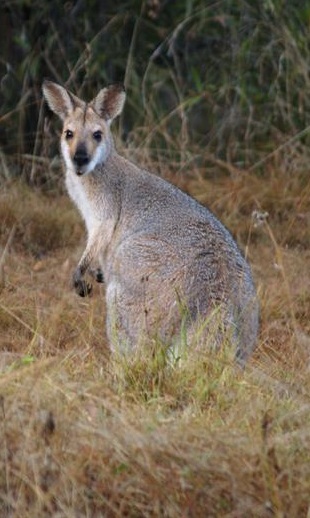 Core Modules:
Core Modules:
- Animal Health Care VAG100
- Animal Behaviour BAG203
- Zoo Keeping BEN208
Elective Modules:
- Animal Anatomy and Physiology
- Vertebrate Zoology
- Ornithology
- Marine Studies I
- Aquarium Management
- Animal Feed and Nutrition
- Diagnosing Animal Diseases
- Animal Breeding
- Wildlife Conservation
- Wildlife Management
- Natural Health Care for Animals
- Ecotourism Tour Guide
- Primates
- Herpetology
What Do the Core Modules Cover
Animal Health Care
There are twelve lessons as follows:
- Introduction to Animal Health Care
- Common Health Problems in farm animals and pets
- Animal Behaviour
- Signs of Ill Health
- Veterinary Facilities
- Safety Procedures
- Administration of Animal Health
- Animal First Aid
- Preventative Health Care
- Routine Health Treatments
- Health Problems in Domestic Pets
- Rehabilitation Care
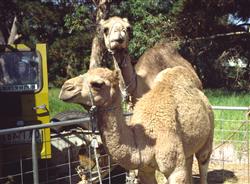
Animal Behaviour
This course has eight lessons:
-
Introduction: Influences and motivation.
- Genetics and Behaviour.
- Animal Perception and Behaviour.
- Behaviour and the Environment.
- Social Behaviour.
- Instinct and Learning.
- Handling Animals.
- Behavioural Problems.
Zookeeping
There are eight lessons as follows:
- The Nature and Scope of Zoos
- Occupational Health and Safety in Zoos
- Captive Husbandry - Health Husbandry - Nutrition and Feeding
- Captive Husbandry - Reproduction
- Captive Husbandry - Behaviour and Enrichment
- Human-Animal Interactions
- Enclosure Design and Maintenance
- Problem-based Learning Project - Environmental Enrichment
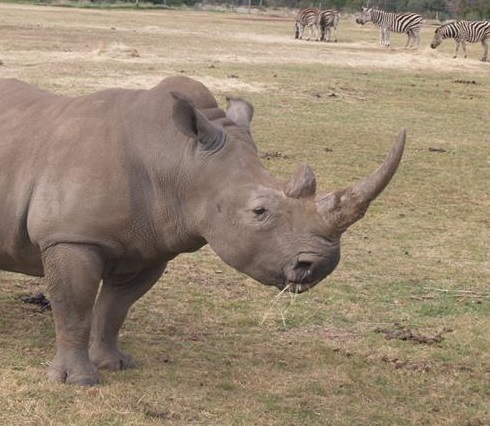
What is Abnormal Behaviour in a Zoo Animal?
The term zoochosis was first coined by Bill Travers, the actor, and eventually animal rights activist; famous for starring in Born Free. It is used to describe repetitive and apparently obsessive behaviour in zoo animals, or animals in artificial environments with little stimulation. It can result in a range of abnormal behaviours, such as –
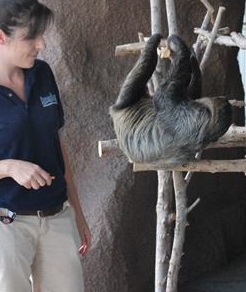 Tongue playing – where the animal continually licks bars, gates or the wall. Often seen in giraffes and camels.
Tongue playing – where the animal continually licks bars, gates or the wall. Often seen in giraffes and camels.- Bar biting – repeated biting or rubbing of their mouth around the bars of an enclosure until it damages their mouth and teeth. This is often seen in bears.
- Neck twisting – where the animal unnatural twists and rolls their neck. Often seen in monkeys, llamas and giraffes.
- Pacing – where the animal walks back and forth along the same path. Often seen in big cats such as lions.
- Circling – is another form of pacing, where the animal places their feet in exactly the same position each time. This is often seen in bears and elephants.
- Vomiting – where an animal will repeatedly vomit, then eat the vomit. This is often seen in chimpanzees and gorillas.
- Coprophagia – which we have already discussed and is often seen in captive gorillas and chimpanzees.
- Rocking – where the animal rocks backwards and forwards over and over. This is a recognised symptom in human mental illness and can be displayed in some animals, such as chimpanzees.
- Swaying is another behaviour also seen in humans with mental illness and can be seen in elephants and bears.
- Over grooming is another behaviour we have discussed already where the animal will groom themselves to such an extent that they leave bald patches where there is no fur or feathers, ulcers and broken skin.
- Self-injury and self-mutilation are another demonstration of zoochosis, where the animal will inflict physical harm on themselves, such as biting or chewing their tail or leg, hitting their head against a wall, etc.
A good Zookeeper will understand such abnormal behaviour, and a great deal more about what a physically and mentally healthy animal needs in order to have a sustainably acceptable state of well being. Study this course and build your foundation for becoming that type of zookeeper.
Working as a Zoo Keeper
As a zoo keeper, you will work to meet various needs of your animals, including:
- Animal care, health and welfare monitoring.
- Food and water preparation and provision.
- Cleaning and maintaining of animal enclosures.
- Observing and recording animal behaviours.
- Providing enrichment.
- Grooming, exercising and training animals, plus -
- Educating visitors through talks or demonstrations.
- Helping with conservation and research projects.
Research & Zoos
Having intimate access to a variety of animals, zoos are in an ideal position to study animals. Animal behaviour, reproduction, life histories, hierarchies and so much more. This information is essential to knowing how to effectively conserve our precious animal species and global biodiversity. Today, it is a common for zoos to be involved in various research and conservation efforts. Some examples include:
- Health and nutrition
- Animal behaviour
- Animal husbandry techniques
- Noval enrichment strategies
- Rehabilitation and release programs
- Visitor Experiences
- Public education and awareness initiatives
- Cooperative research into conservation of threatened species
- Recovery programs for wildlife and endangered species
- Preservation of genetic diversity
- Reproduction programs
- Self-assessment (how the zoo can improve particular functions), and so much more.
Succeed as a Zoo Keeper
Build experience and knowledge over time, which opens doors and exciting prospects. Zoo keeping is a globally recognised role. Many of the skills are highly transferrable, meaning that it may lead to travel opportunities.
An example - Our tutor, Robert Browne, started by studying and gaining zoo keeping experience in Australia. As he developed knowledge and a reputation within the world of zoology, he has followed exciting opportunities to work right across Australia, in Europe, Asia and America.
You may start as a volunteer while studying a course like this, progress to paid employment in a zoo or veterinary practice. Then eventually progress to international opportunities, perhaps in zoos, maybe in a wildlife reserve, an aquarium, a rehabilitation centre, or somewhere else!
People who are successful are those who are passionate, persistent and prepared to do whatever it takes to succeed. If this describes you, we can help you to get a start.
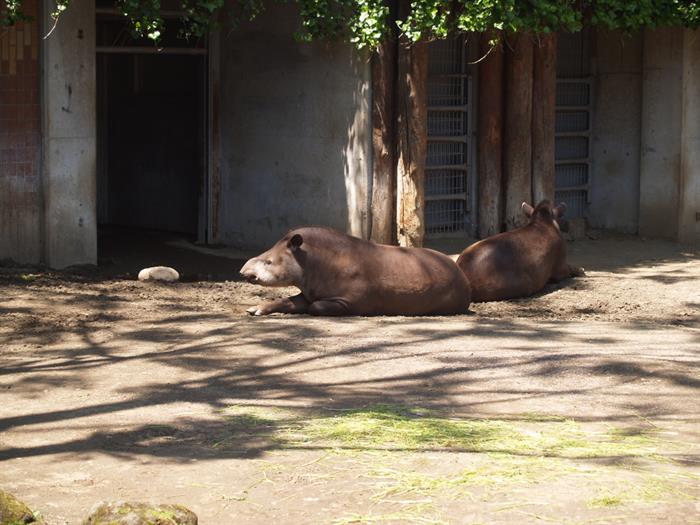
Course Duration: 600 hours of self-paced study.
Why Study with ACS?
Design your own learning pathway.
Study at your own pace, from anywhere, at any time.
Receive prompt, expert support from our team of committed and friendly tutors.
Your learning is our priority. We are flexible and adaptable to meet your educational needs!
Want advice on creating a learning pathway that suits your needs? Speak to one of our friendly staff for today!
Phone - International: +61 7 5562 1088 In Australia: 07 5562 1088
Email - admin@acs.edu.au or studentservices@acs.edu.au